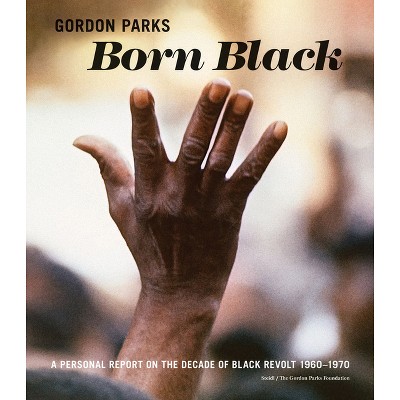Sponsored

Gordon Parks: Stokely Carmichael and Black Power - by Lisa Volpe (Hardcover)
Out of Stock
Sponsored
About this item
Highlights
- A nuanced profile, in image and text, of the great Black Power leader at the exhilarating moment of the movement's ascendancyGordon Parks' 1967 Life magazine essay "Whip of Black Power" is a nuanced profile of the young, controversial civil rights leader Stokely Carmichael.
- Author(s): Lisa Volpe
- 176 Pages
- Photography, Individual Photographers
Description
Book Synopsis
A nuanced profile, in image and text, of the great Black Power leader at the exhilarating moment of the movement's ascendancy
Gordon Parks' 1967 Life magazine essay "Whip of Black Power" is a nuanced profile of the young, controversial civil rights leader Stokely Carmichael. As chairman of the Student Nonviolent Coordinating Committee, Carmichael gained national attention and inspired media backlash when he issued the call for Black Power in Greenwood, Mississippi, in June 1966. Parks shadowed him from the fall of 1966 to the spring of 1967, as Carmichael gave speeches, headed meetings and promoted the growing Black Power movement. Parks' photos and writing addressed Carmichael's intelligence and humor, presenting the whole man behind the headline-making speeches and revealing his own advocacy of Black Power and its message of self-determination and love.
Stokely Carmichael and Black Power delves into Parks' groundbreaking presentation of Carmichael, with analysis of his images and accompanying text about the charismatic leader. Lisa Volpe explores Parks' complex understanding of the movement and its leader, and Cedric Johnson frames Black Power within the heightened political moment of the late 1960s. Carmichael's own voice is represented through a reprint of his important 1966 essay "What We Want."
Gordon Parks (1912-2006) was a photographer, filmmaker, musician and author whose 50-year career focused on American culture, social justice, the civil rights movement and the Black American experience. Born into poverty and segregation in Fort Scott, Kansas, Parks was awarded the Julius Rosenwald Fellowship in 1942, which led to a position with the Farm Security Administration. In 1969 he became the first Black American to write and direct a major feature film, The Learning Tree, and his next directorial endeavor, Shaft (1971), helped define a film genre.
Review Quotes
A visually charged deep-dive of a book that reveals dozens of Parks' remarkable outtakes, along with his contact sheets and his typewritten manuscript for the story.--Bill Shapiro "Esquire"
It does much to contextualize Carmichael's media image as less of a misunderstanding than a coordinated attack by white elites spooked at the prospect of Blacks having any power not directly sanctioned by them.--J. Howard Rosier "New York Magazine: Vulture"
Shipping details
Return details
Frequently bought together




Trending Non-Fiction






Discover more options







